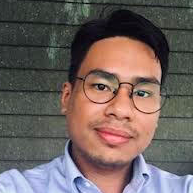

This pandemic-induced lockdown has revealed so much about our sense of humanity, our values and principles, and how we see others in a time of great distress. This May 1 we will commemorate Labor Day, supposedly to recognize and honor all the working people of the world. But are we really doing justice to this day?
A lot of people are always ready to point out how this time of tragedy has also become a great opportunity to show the nobility of the human soul, of how the Filipino spirit of bayanihan lives on. Ironically, as history teaches us, human nobility blossoms in the midst of human tragedy.
An image: construction workers of a high-rise building in Ortigas, left behind by their management, begging food from motorists and anyone who passes by.
People are easily swayed by the emotionally-charged rhetoric of calling our frontline workers "heroes." Such romanticism should be unmasked for its emptiness, a form of tokenism aggravated by the rhetoric of resiliency. If most of our frontline workers did really have a choice, why would they choose to work outside and risk getting infected? (READ: [OPINION] The out-of-touch, elitist gaps in our lockdown)
We regard them as essential workers. For those who’ve watched Schindler’s List, you’ll know for sure that to be regarded as “essential” has an odd and sinister ring to it. But how do we really “honor” essential frontline workers?
According to the National Development Authority (NEDA), a Filipino family of 5 needs a combined monthly income of P42,000 from at least two working adults to live decently away from poverty.
A lot of our frontline workers are daily minimum wage earners: supermarket cashiers, drivers, janitors, and housekeeping personnel, working on a no-work-no-pay basis. Look closely and see that theirs is not a heroic situation but a hostage-taking situation. We have martyrs, not heroes, trapped within a system that prefers profit over people.
Activists and progressive labor groups continue to assert that the daily minimum wage should be at P750 for a Filipino family to live decently, which should be P15,000 a month or P30,000 combined from two working adults. The Department of Labor and Employment (DOLE) pegs the daily minimum wage at P537, that’s roughly P10,000 monthly or almost P20,000 from two working adults. From this amount subtract statutory deductions, bill payments for rent, water, electricity, food, transportation, medicines, among other expenses.
Meanwhile, Mocha Uson, Purveyor of Fake News, has a government position which has more or less than P150,000 monthly salary sourced from the hard-earned taxes of the Filipino people, and without any merit to show for her role other than her avid fanaticism for President Rodrigo Duterte while leading hordes of DDS trolls.
In ECQ, workers might have additional “hazard pay” or “allowance” but that would not go beyond a few hundred pesos, count that against the risk of getting hospitalized due to infection or accident, plus inflation and the high prices of goods and services. P10,000 doesn’t really go a long way these days. We have a harrowing saying in Filipino, “Wag lang ma-ospital,” which tells a lot how so many people are but one or two hospital bills away from succumbing to dire poverty or death.
Now let’s go to our medical frontliners. We hail our nurses, doctors, medical technicians, hospital staff and other medical personnel as heroes. And yet the national health agency of the land, the Department of Health (DOH), in its “call for volunteers,” values their expertise at a mere P500 allowance per day. Besides food and accommodation, the only benefits they get are insurances for when they either get infected with the COVID-19 or die because of it. Not to mention the severe lack of Personal Protective Equipment (PPE) they have to endure. (READ: [OPINYON | Wikapedia] Paano natin inaalagaan ang ‘wounded healers’ ng COVID-19?)
Indeed, everybody suffers, great and small, rich and poor alike from the scourge of this sickness. Death and the plague have taken their toll from all classes of society. Indeed, we all suffer, but we do not suffer equally. (READ: [OPINION] From hospitals to farms and forests: Stand with our frontline workers)
The misery of the rich is not the same as the anguish of the poor. The very wealthy suffer from boredom and forced isolation, they problematize where to invest their money next or how to keep their businesses afloat.
The middle class have very different sentiments, given its different segments: some of them endure comfortably inside their rent-to-own houses in subdivisions, working at home, Netflix-and-chilling, some are cooped up in their rented apartments and rooms, while some are now at risk of succumbing to debt, hunger, and joblessness.
At worst are the poor, the marginalized, informal settlers, and the homeless who must fend for themselves and who try in great difficulty to secure their rightful aid from the government.
Heroes are made, forced and forged by terrible injustice and dehumanizing situations. Perhaps it is time to create a new reality that does not make heroes out of people. Perhaps we do not really need heroes; perhaps what we need are simply people who are deeply committed to what is humanly good, right, and just, who have the courage to pursue them and demand them from others, especially from those with wealth and power. – Rappler.com
Dom Balmes is a communications professional in the BPO industry and a struggling writer.